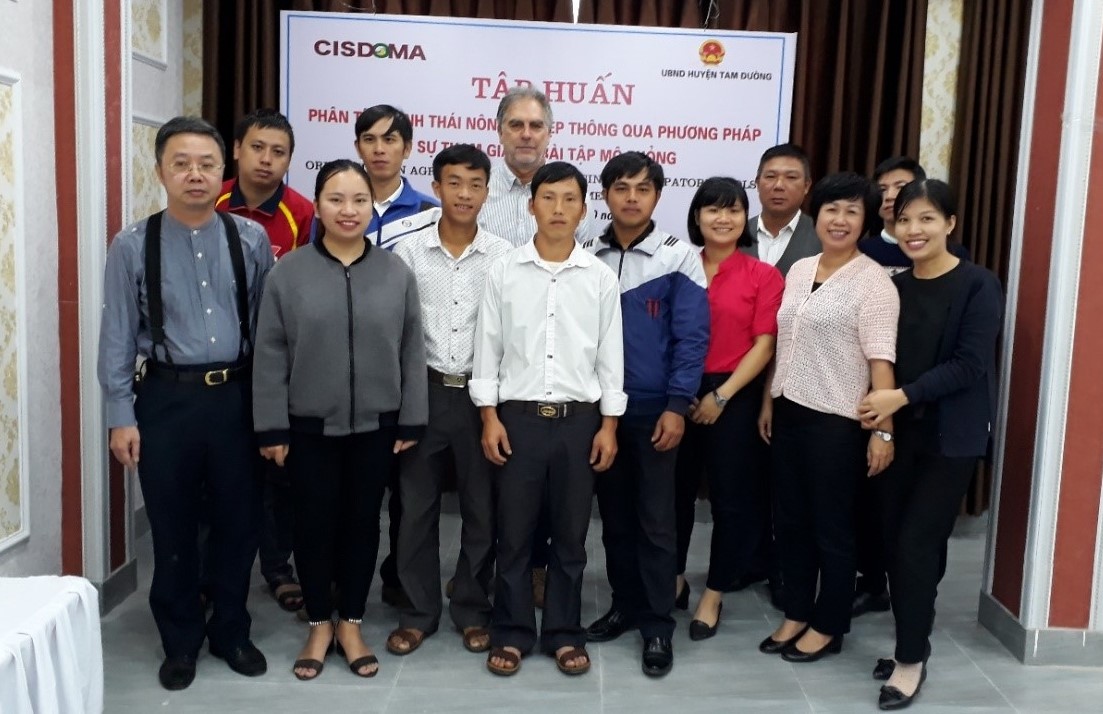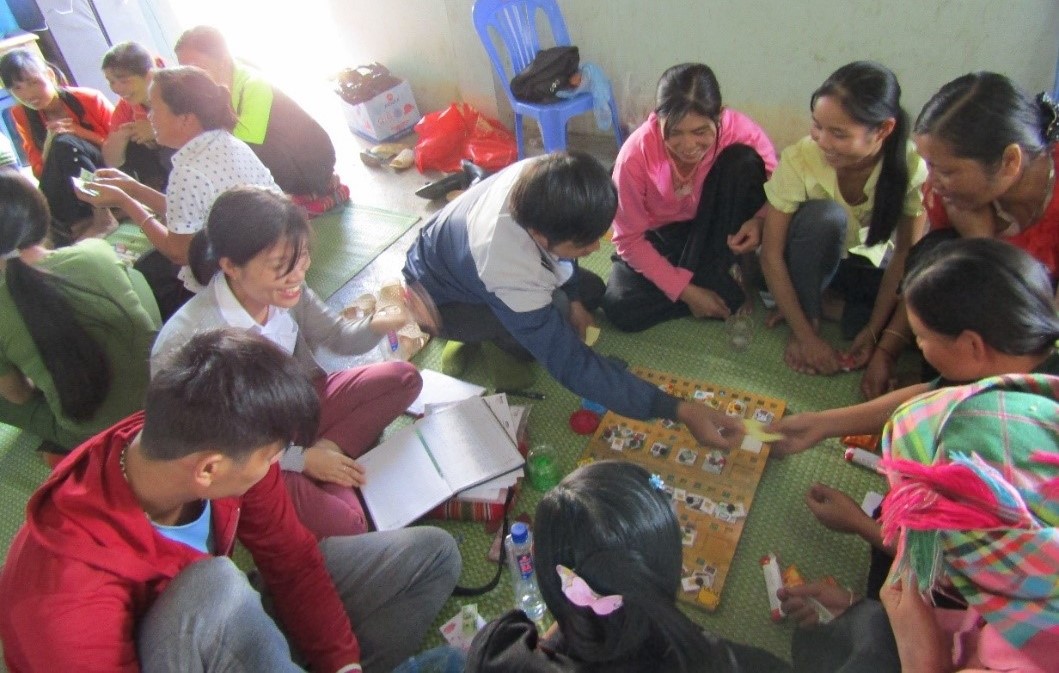“Through the games, I now know to invest more wisely”, Ms. Luong Thi Doi, a farmer in Binh Lu commune, Tam Duong district (Lai Chau province) shared after attending the sessions of simulation games. These simulation sessions was supported by the project “Promoting agro-ecology transition via enhancing farmers’ analytical and decision making capacity through application of simulation games” funded by The Agro-ecology Learning alliance in South East Asia (ALiSEA).

Vietnam is undertaking a strategic transformation of agricultural sector, with strong direction from government towards improving quality of agricultural products and protecting environment. From technical aspect, application of agro-ecology friendly practices in to farming systems is the only way to ensure safe quality of the products and sustainable environment. The adoption of the environment friendly technologies and practices however has encountered numbers of obstacles. Among the hindering factors, the low level of acceptance and adoption of farmers towards agro-ecological friendly techniques is a bottleneck. A critical reason to this fact is that there is lacking of effective approaches in communicating and facilitating farmers, and consequently limited application and expansion of the good practices. Simulation games have been proved as an effective tools to facilitate farmers’ engagement into the analysis and decision making process, and to improve efficiency of capacity building activities for farmers.
Implemented in Tam Duong district, Lai Chau province, the project “Promoting agro-ecology transition via enhancing farmers’ analytical and decision making capacity through application of simulation games” is introduced to help address the bottleneck in adoption of different agro-ecology good practices, which is the perception of farmers.
In October 2017, the project started with a training to local agricultural and extension staff with the support from international and Vietnamese experts – Ph.D Patrick D’Aquino and Ph.D Doan Thu Thuy. Participants from this training were introduced to and coach on the methods of designing and facilitating simulation games. They then worked as the facilitators to facilitate application of simulation games into practices with farmers. Within 2 weeks, ten key facilitators trained on the games and were able to facilitate the simulation sessions at the villages.

Training to local agricultural and extension staff
Attended the training facilitated by the experts, Ms. Nguyen Thi Thanh Nha, a project staff, expresses her interest in simulation games: “This is the first time I know this tool. This exercise / simulation game helps farmers to find solutions to their difficulties and challenges in agricultural production. This is a completely new and exciting participatory analytical tool for me and other members of the class. I will apply this tool to my job, and I think many other participants have the same thought as me“.
After the training, facilitators conducted the simulation sessions with more than 100 farmers in 3 communes of Tam Duong district. The new board games developed for three selected topics. Being facilitated with the simulation exercises, farmers had the chance to actively go through a process of analyzing different aspects of the issues, particularly on the benefits, difficulties, challenges and conditions for applying the agro-ecological friendly practices. During the sessions, the players can talk and discussion each other for their problems without shame or hesitant; there were very exciting competition and argument on the issues. Through these exercises, farmers are able to analyze the issues and identify solutions to solve their difficulties; and consequently they will have well-informed decision and preparation so that they can pursue appropriate practices sustainably.

Farmers actively participated in the simulation sessions
Ms. Luong Thi Doi is a 30 year-old farmer from a poor family, living with her husband and two children. Her family now use traditional farming methods, produces just enough to feed their family and sometimes face food shortage in 1 – 2 months. “I was introduced new agricultural practice that increase yield while reducing inputs. Through the game, I now know to invest more wisely. I want to participate in self-governing group of the village to learn and share knowledge with others, then improve our income together”, Ms. Doi shared after attending a simulation session.
With the positive results from the project, CISDOMA is planning to promote adoption of the simulation games into the existing projects of CISDOMA and also to other partners of ALiSEA.
For more information please visit the site:
